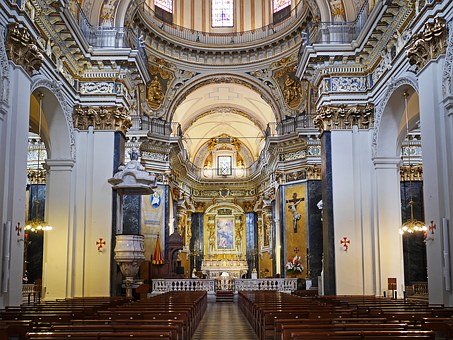Senior Lecturer, Dorigen Caldwell, reflects on her award and looks forward to a time she can visit Italy again.
Like most art historians, I have a passion for art, and am happiest wandering around art galleries, cities and churches. It is therefore a privilege to be able to call that work!
Please tell us about your area of research. I am a Senior Lecturer in Italian Renaissance Art in the History of Art Department at Birkbeck. My area of research is early modern Italy, with a particular emphasis on religious art produced after the Council of Trent (1545-63), where the beliefs and practices of the Catholic Church were discussed and codified, partly in response to the Protestant Reformation. This marked a key moment in debates not only around religion, but also around the visual arts and their role in the propagation of faith.
What inspires you most when it comes to your academic pursuits? Like most art historians, I have a passion for art, and am happiest wandering around art galleries, cities and churches. It is therefore a privilege to be able to call that work! In both teaching and research, I think I am primarily interested in the history of ideas, and in thinking about the use of images within a broader historical and cultural context.
Why have you chosen this particular area of research? The title of my current research project, for which I was awarded the Leverhulme fellowship, is ‘Piety, Patronage and Politics in Early Modern Rome’. The focus of this research is a private chapel in a Roman church that was lavishly decorated at the beginning of the seventeenth century, and includes an altarpiece designed by the celebrated painter, Annibale Caracci. I chose this chapel because it was commissioned by a family of cardinals who came from the Northern Italian city of Trent, where the pivotal Council was held, and which at the time was a German-speaking territory. As such, these cardinals represented the interests of German catholicism in Rome, and their family chapel represents a unique opportunity to examine the relationship between the periphery (Northern Italy/Southern Germany) and the centre (Rome) of the Catholic world at the time, and to explore ideas around images, beliefs and politics at a moment of intense artistic production.
What impact do you envisage from the research? I am due to give papers at conferences in Rome and Dublin over the next year (coronavirus permitting!) and plan to write a book which I hope will disseminate my research to a broad audience beyond the disciplinary boundaries of art history. The Leverhulme Trust will be paying for a replacement post to carry out my Birkbeck duties over the course of the next academic year (apart from my PhD students who I will continue to supervise); and I plan to make two research trips to Italy to visit churches and archives. The award allows me to focus on my research for a year, to (hopefully) travel to Italy, and to get as much of my book written as possible in the time.
And lastly, can you share your sentiments on the significance of the Fellowship? I am incredibly grateful to the Leverhulme Trust for this Fellowship, as it will make all the difference to my research, allowing me to focus on my book project over an extended period of time. I am very excited about this opportunity to devote myself to my research and I look forward to the moment when I can travel to Italy again.

